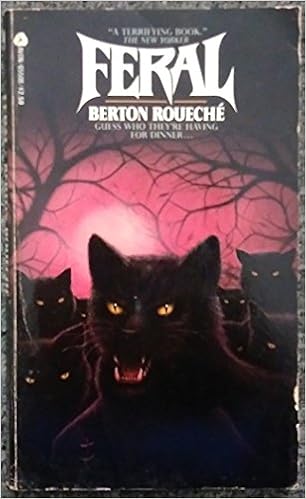His "...simple, sturdy, gloriously specific sentences ...[are] delightful ... He was a master of plain-style writing. William Shawn described his technique as follows: “Certainly his is the art that conceals art. His words are so plain, his sentences so chaste, his rhythms so natural that one can overlook the presence of the writer and see straight through to the matter at hand” ....'
He wrote on other topics:
'Roueché loved train travel. “I have a fondness for trains,” he says in “Trans Europ Nuit” (The New Yorker, December 28, 1981). In “On the Terrace,” he writes, “A train moved through a different world. It was a world of change and surprise. It was a world of back doors, back roads, back country. It had a backstage intimacy” (The New Yorker, September 15, 1980). In addition to “Trans Europ Nuit” and “On the Terrace,” he wrote three other train pieces – all of them marvelous: “The Best Medicine on the Market” (The New Yorker, January 20, 1962), “Rapido” (The New Yorker, December 29, 1980), and “En Vitesse to Rome” (The New Yorker, February 21, 1983)...'
It remains that his medical writing brought him fame--his was not just well-written, but so accurate that his writing was sometimes required reading for medical students.
Some fame accrued through his fiction:
Black Weather, 1945 (also published as Rooming House);
The Last Enemy, 1956;
Feral, 1974 (U.K. The Cats);
Fago, 1977.
Feral is described this way in some blurb---
'Equally good a read is Berton Roueche's Feral. Short, episodic, succinct in style, with a punchline to every page, and scary. The story of a couple who take a house in rural Long Island beside a forest tpopulated by homeless cats with the most nauseating appetites. Yes, friends, once again Man is menaced by a natural insurrection. After those giant ants, grasshoppers, lizards galore, not to mention the birds, here come the pussycats! Seriously, folks, Roueche is not putting us on.'

One has to assume Roueche did not like cats. I say this not because he wrote a suspense story about them, but because this story reveals his ignorance--- cats are not pack animals, though that they are, is crucial to his story.
'Roueché loved train travel. “I have a fondness for trains,” he says in “Trans Europ Nuit” (The New Yorker, December 28, 1981). In “On the Terrace,” he writes, “A train moved through a different world. It was a world of change and surprise. It was a world of back doors, back roads, back country. It had a backstage intimacy” (The New Yorker, September 15, 1980). In addition to “Trans Europ Nuit” and “On the Terrace,” he wrote three other train pieces – all of them marvelous: “The Best Medicine on the Market” (The New Yorker, January 20, 1962), “Rapido” (The New Yorker, December 29, 1980), and “En Vitesse to Rome” (The New Yorker, February 21, 1983)...'
It remains that his medical writing brought him fame--his was not just well-written, but so accurate that his writing was sometimes required reading for medical students.
Some fame accrued through his fiction:
Black Weather, 1945 (also published as Rooming House);
The Last Enemy, 1956;
Feral, 1974 (U.K. The Cats);
Fago, 1977.
Feral is described this way in some blurb---
'Equally good a read is Berton Roueche's Feral. Short, episodic, succinct in style, with a punchline to every page, and scary. The story of a couple who take a house in rural Long Island beside a forest tpopulated by homeless cats with the most nauseating appetites. Yes, friends, once again Man is menaced by a natural insurrection. After those giant ants, grasshoppers, lizards galore, not to mention the birds, here come the pussycats! Seriously, folks, Roueche is not putting us on.'

One has to assume Roueche did not like cats. I say this not because he wrote a suspense story about them, but because this story reveals his ignorance--- cats are not pack animals, though that they are, is crucial to his story.
No comments:
Post a Comment